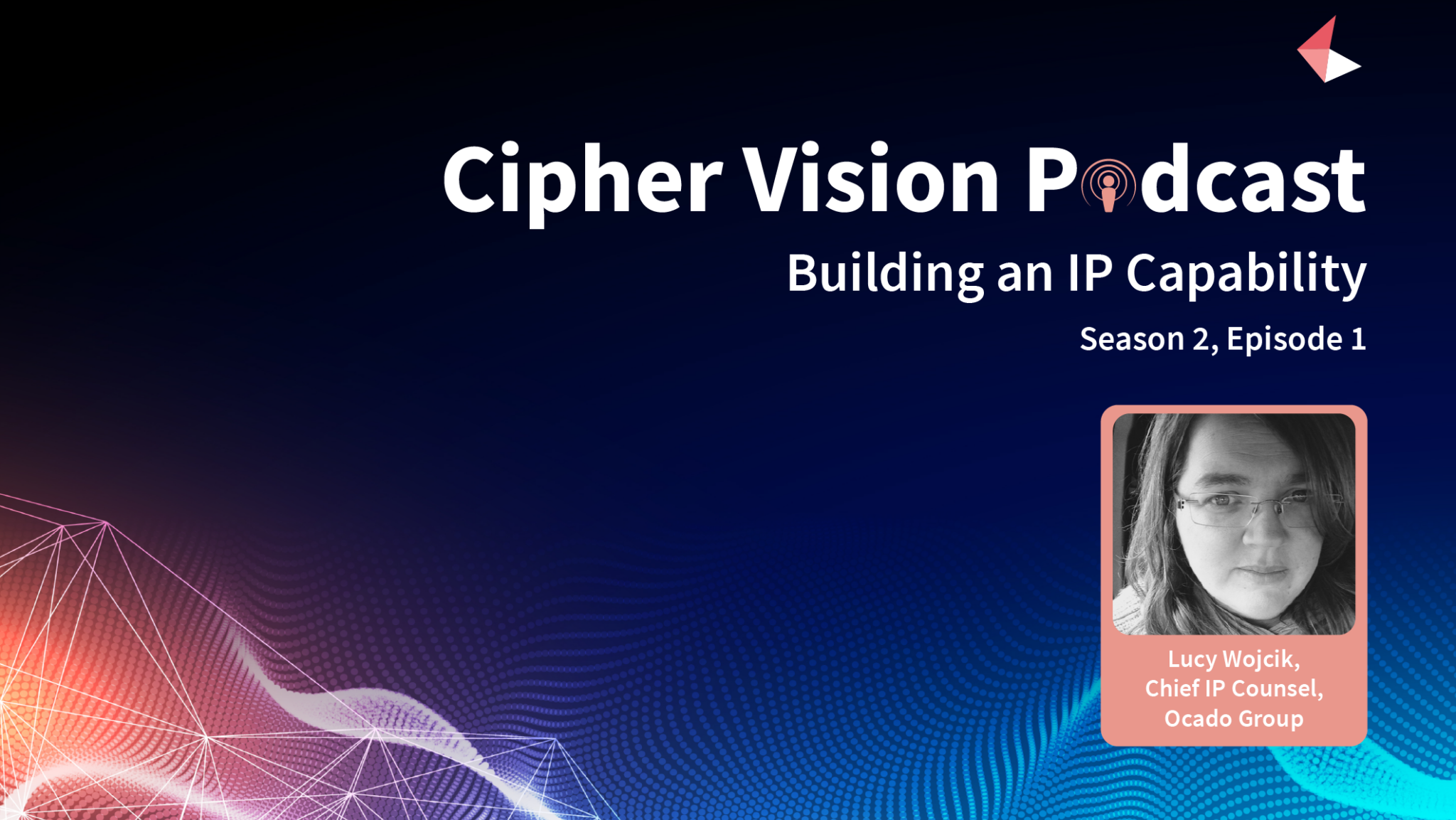Building an IP Capability

Guest:
- Lucy Wojcik, Chief Intellectual Property Counsel, Ocado Group
Episode Highlights
The Ocado business model
If you live in London, most of you would think of Ocado as those cute little vans running around that would deliver your food once a week. Ocado started in 2000 as an online-only retail company, so it never had any shops. They had this warehouse – they needed it to be able to pick and pack orders, and get them out in one-hour delivery slots.
But the equipment just simply didn’t exist. So they would buy equipment from systems integrators and from companies that supplied conveyors and shuttle systems, and patch them together to make them do what they wanted them to do. They were gradually bringing more and more people in house when they realized, “you know what, we’re quite good at the ‘technology stuff’”, so Ocado developed a technology business that ran alongside the retail business.
Sometime in 2018, it became apparent that the main part of the company had really turned into a tech company that happened to have a grocery retail online delivery section at its side, and that other companies were willing to pay for this technology. That’s when you saw the deals starting to come out where we exclusively licensed our technology to partner companies that we now have in 10 jurisdictions around the world.
A story of growth
When I arrived in 2014, Ocado teams were just looking at the design and development of what we now call the ‘Ocado Smart Platform’. It was a need-to-know project; only 20 people in the company knew about it at that point. To go from there, to working for a company that has all these research development offices around the world; the IP risks have increased, the data that we’re dealing with has changed, the people that we’re dealing with has changed.
Understanding your audience
I think part of the skill of being a really good Patent Attorney, IP lawyer or Head of IP is understanding your audience. You need to know that if you’re going to be having a discussion with the CEO, there is no point in going into detail of why you need certain types of claims and what the patent family history needs to be. You need to say to them: ‘This is what I need, this is how much it’s going to cost, this is why we need it’.
If you’re talking to somebody who’s interested in IP, who’s one of the inventors who wants to understand how their invention is going to work, then you need to be able to have a different set of communication skills. We’re all capable of it because we talk to our children differently than we talk to our boss. It’s the ability to morph into different communication means depending on who you’re talking to, and that then enables you to develop the relationships you need.
You’re never blaming any of these different audiences for not understanding, you’re adapting and seem to be finding their language. Would that be right?
Yes, you’re exactly right. Fundamentally, as an IP professional in a company like Ocado, I’m the one who knows IP. I’m the expert. I’m in charge of the IP, of course, I should understand it to a horrifically ridiculous level. Why should anybody else in the company – internal, external, comms, engineers, CEO – why should they understand it to that level? It’s our job to take a complicated subject and be able to give the people around us the information they need to be able to perform effectively.
The future for IP Professionals
I’d like to think that IP people will become a bit more hybrid. In my 25 years of being an IP attorney, the profession has moved from people sitting in offices with doors shut, beavering away on their own and never speaking to anybody into a much more communicative and accessible team of people to work with.
I think we are still the experts in the IP field. But I feel a little bit evangelistic about it; I think it’s going to be really important for more and more people to understand more and more about IP. Therefore, as experts in the field, we need to get really good at communicating the message, communicating the information, and being on board with the people that we work with in making sure they’re getting the best out of their IP.
Message from the CEO
In the fast-moving world of technology, organizations grow at an exponential rate. And there’s no better example of that today than Ocado. While executives know that Intellectual Property is important, this is often more of a gut feeling than understanding. IP professionals, such as Lucy, have successfully taken on the challenge of building an IP capability using imagination, versatility, and empathy. In order to succeed, you can never take your eye off your primary objective, which is to make a difference to the business. That’s not the same as being a solid IP practitioner.

Looking for new ways to classify patent data and create bespoke technology clusters?
Find out how you can use the LexisNexis Cipher Classification system to read 44m+ patents globally and pull the relevant patents into a classifier defined by you and avoid the hard work of going and finding the right patents.
